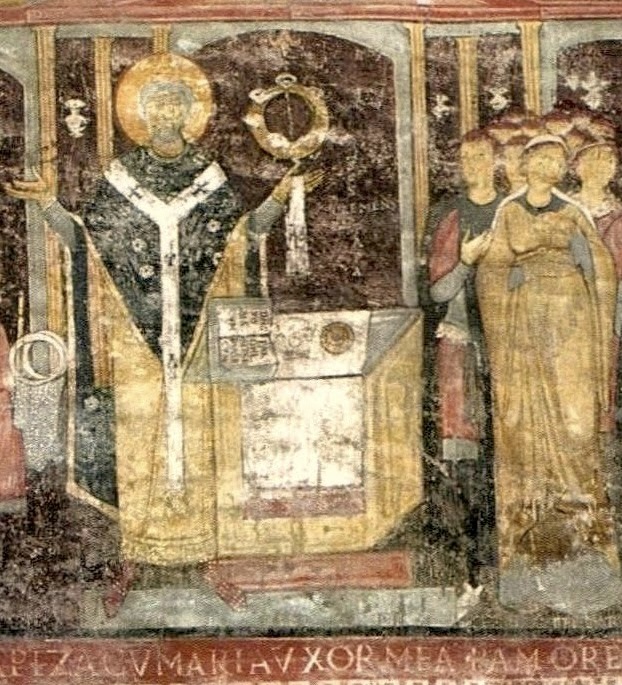Therefore, I beg you to confirm your love for him. For the reason I have written to you is to test you and to know whether you are obedient in everything. The person you forgive, I also forgive. For indeed, what I have forgiven–if I have anything to forgive–I have done for your sake in the presence of Christ, lest we be cheated by Satan; for we are not unaware of his schemes. (2 Cor. 2:8-11)
St. Paul is writing about someone who committed a very serious sin in public and whom the Corinthian parish excommunicated, at his request. (Perhaps it was the man sleeping with his father’s wife.) Now St. Paul is asking the parish to forgive the person. He says that he is testing their obedience, to see if they will forgive at his request as they excommunicated the person at his request. He also promises that if the parish forgives the person, he will also forgive the person. If anyone refuses to forgive, they are being cheated by Satan, the great adversary, whose schemes and plots against the People of God are well known.
The important thing, St. Paul says, is that the parish forgive the sinner. If the parish forgives, then the apostle also forgives. It is the forgiveness of the parish–the entire Church–that cheats Satan of his prey. Forgiveness is always a community event: to be forgiven by one is to be forgiven by all and to be forgiven by all is to be forgiven by one. Forgiveness is never solitary or isolated, done in a corner and unknown.
Confession of sin and forgiveness is always a community act. Although we each confess personally in private to the priest, the priest personifies both Christ and the Church–the Head and the Body together. The priest offers each sinner the forgiveness of both Christ and the Church–the Head and the Body together. If I receive this forgiveness, I cheat Satan of his prey (me); if the priest offers forgiveness on my behalf, we cheat Satan of his prey (the community of the faithful).
Our confession is not about how we sin by “breaking the rules.” Our confession is about telling the spiritual physician–the priest–our symptoms, how the disease of sin afflicts us. The physician doesn’t tell us what we need to do to pay off our punishment for breaking the rules; the priest offers us a prescription of spiritual medicine for how we can recover from the symptoms we have described.
If we ask for-accept-extend forgiveness, we have cheated Satan of his prey. At least for today. Satan deserves to be cheated of his prey because he only snatches his prey because he first cheated us, the human race, by lying and cheating Adam and Eve, our first parents. The cheater is cheated and the world is saved.




